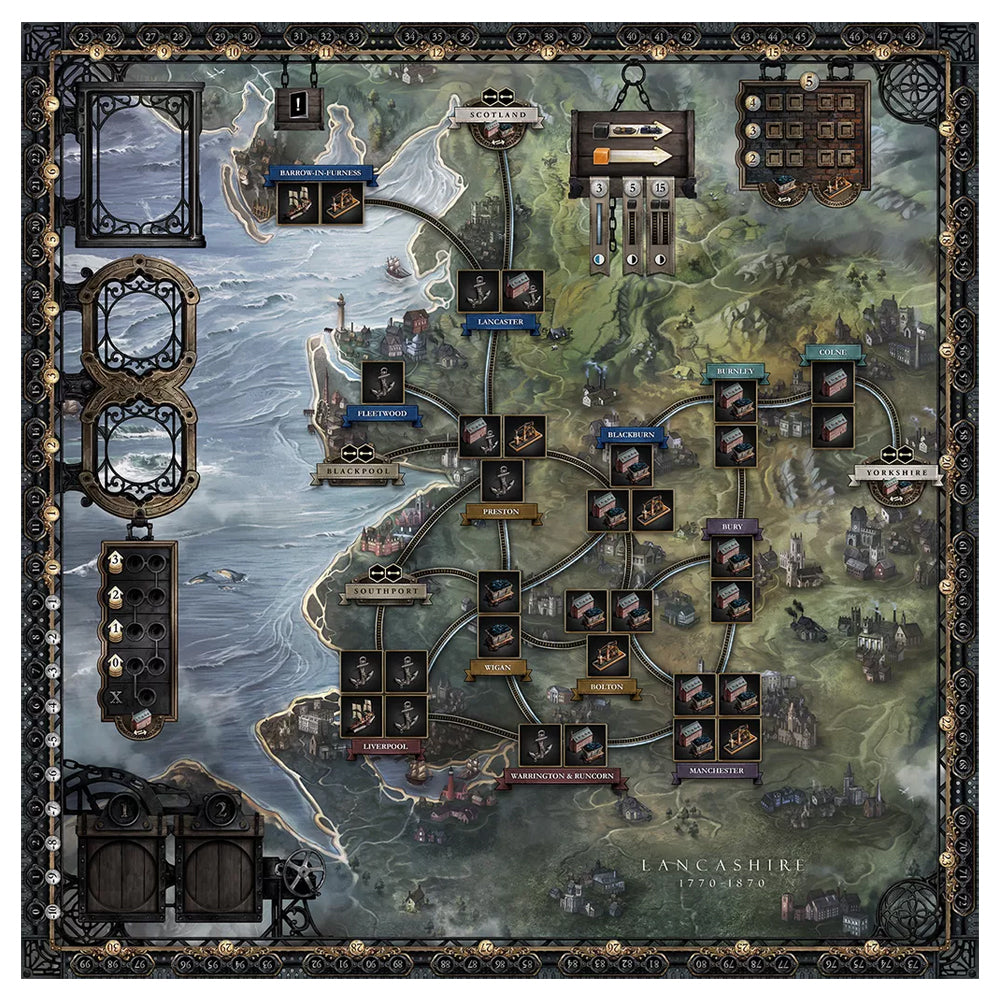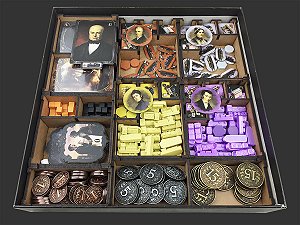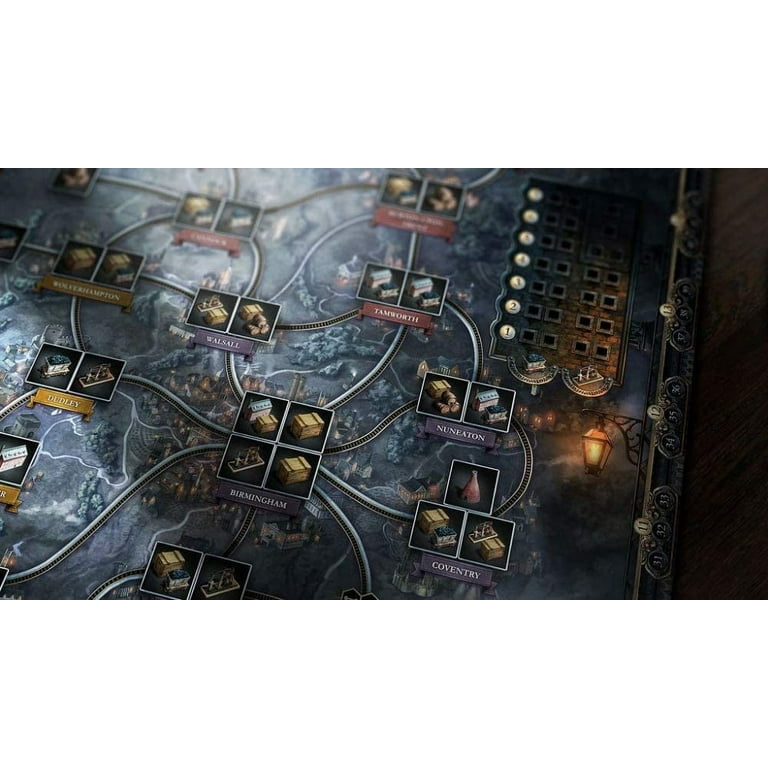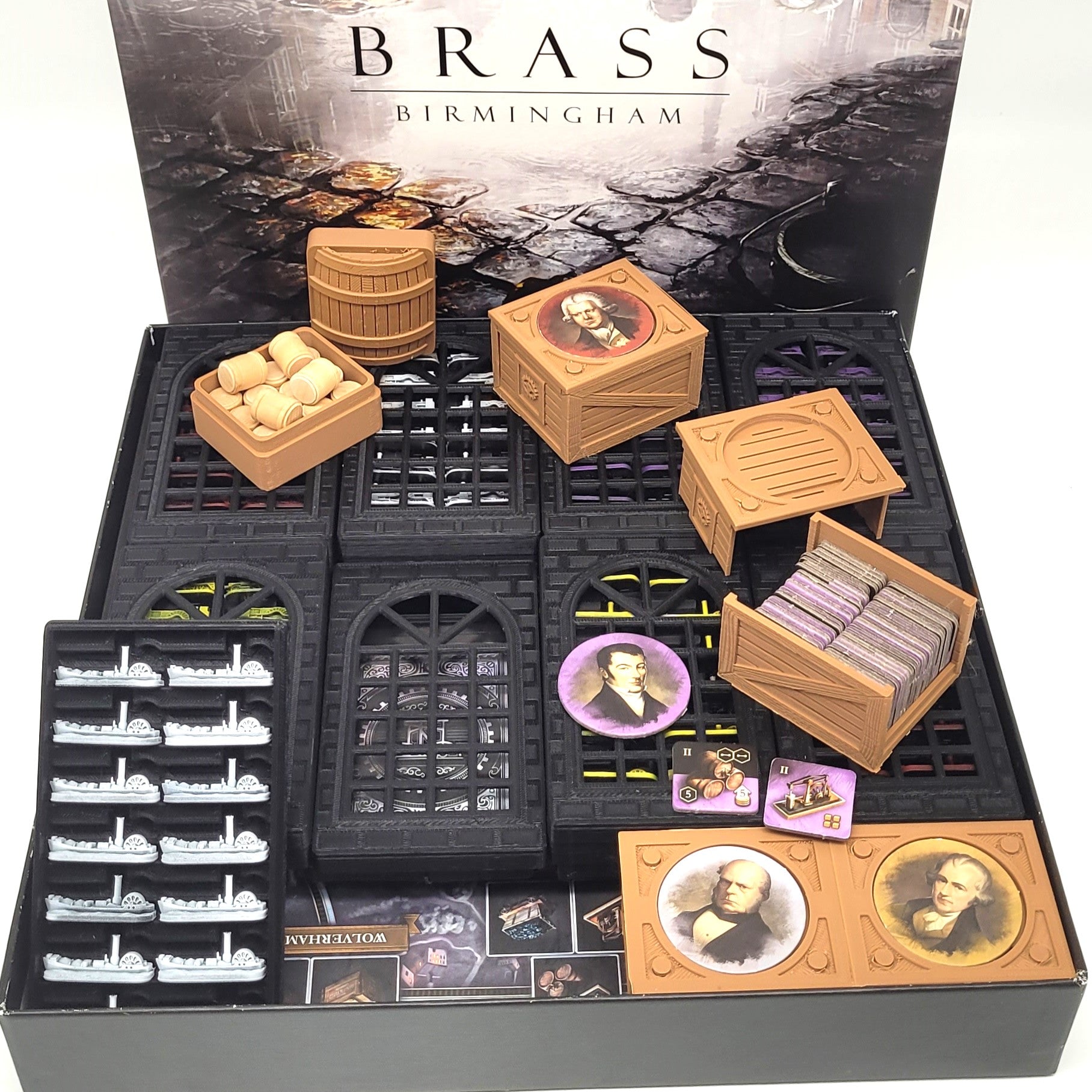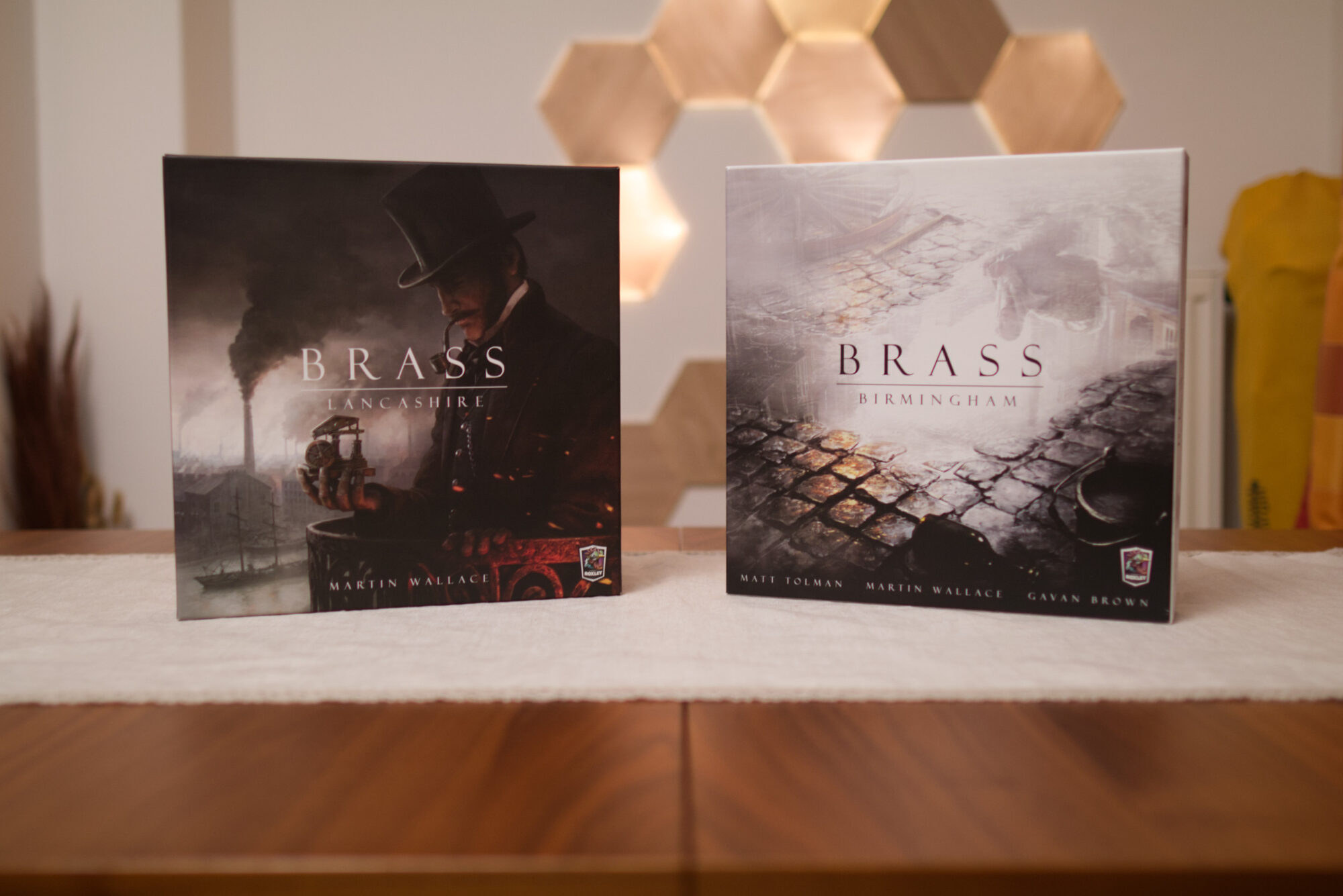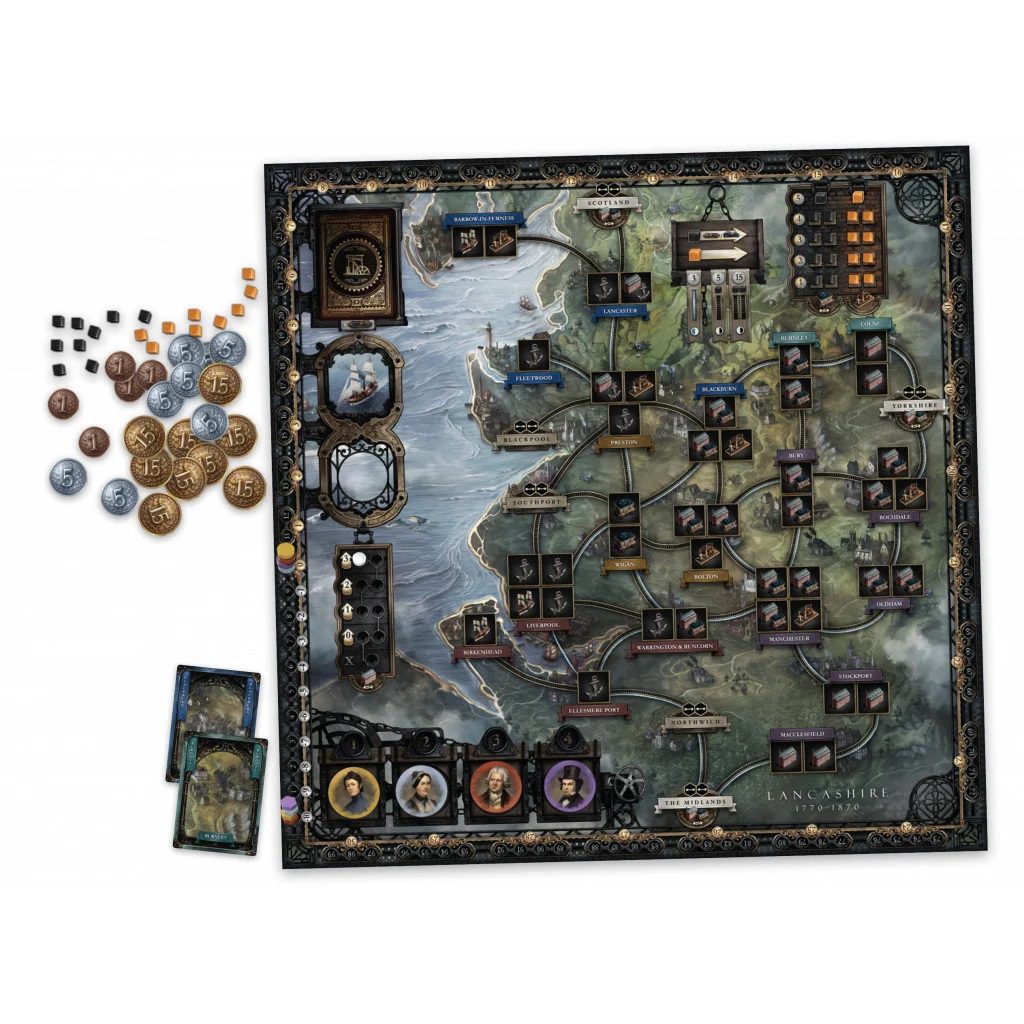Brass: Lancashire first published as Brass is an economic strategy game that tells the story of competing cotton entrepreneurs in Lancashire during the industrial revolution. You must develop, build, and establish your industries and network so that you can capitalize demand for iron, coal and cotton. The game is played over two halves: the canal phase and the rail phase. To win the game, score the most victory points (VPs), which are counted at the end of each half. VPs are gained from your canals, rails, and established (flipped) industry tiles. Each round, players take turns according to the turn order track, receiving two actions to perform any of the following: Build an industry tile Build a rail or canal Develop an industry Sell cotton Take a loan At the end of a player's turn, they replace the two cards
Brass: Lancashire first published as Brass is an economic strategy game that tells the story of competing cotton entrepreneurs in Lancashire during the industrial revolution. You must develop, build, and establish your industries and network so that you can capitalize demand for iron, coal and cotton. The game is played over two halves: the canal phase and the rail phase. To win the game, score the most victory points (VPs), which are counted at the end of each half. VPs are gained from your canals, rails, and established (flipped) industry tiles. Each round, players take turns according to the turn order track, receiving two actions to perform any of the following:Build an industry tileBuild a rail or canalDevelop an industrySell cottonTake a loanAt the end of a player's turn, they replace the two cards they played with two more from the deck. Turn order is determined by how much money a player spent on the previous turn, from lowest spent first to highest spent. This turn order mechanism opens some strategic options for players going later in the turn order, allowing for the possibility of back-to-back turns.After all the cards have been played the first time (with the deck size being adjusted for the number of players), the canal phase ends and a scoring round commences. After scoring, all canals and all of the lowest level industries are removed for the game, after which new cards are dealt and the rail phase begins. During this phase, players may now occupy more than one location in a city and a double-connection build (though expensive) is possible. At the end of the rail phase, another scoring round takes place, then a winner is crowned.The cards limit where you can build your industries, but any card can be used for the develop, sell cotton or build connections actions. This leads to a strategic timing/storing of cards. Resources are common so that if one player builds a rail line (which requires coal) they have to use the coal from the nearest source, which may be an opponent's coal mine, which in turn gets that coal mine closer to scoring (i.e., being utilized).
Brass: Lancashire first published as Brass is an economic strategy game that tells the story of competing cotton entrepreneurs in Lancashire during the industrial revolution. You must develop, build, and establish your industries and network so that you can capitalize demand for iron, coal and cotton. The game is played over two halves: the canal phase and the rail phase. To win the game, score the most victory points (VPs), which are counted at the end of each half. VPs are gained from your canals, rails, and established (flipped) industry tiles. Each round, players take turns according to the turn order track, receiving two actions to perform any of the following:
- Build an industry tile
- Build a rail or canal
- Develop an industry
- Sell cotton
- Take a loan
At the end of a player's turn, they replace the two cards they played with two more from the deck. Turn order is determined by how much money a player spent on the previous turn, from lowest spent first to highest spent. This turn order mechanism opens some strategic options for players going later in the turn order, allowing for the possibility of back-to-back turns.
After all the cards have been played the first time (with the deck size being adjusted for the number of players), the canal phase ends and a scoring round commences. After scoring, all canals and all of the lowest level industries are removed for the game, after which new cards are dealt and the rail phase begins. During this phase, players may now occupy more than one location in a city and a double-connection build (though expensive) is possible. At the end of the rail phase, another scoring round takes place, then a winner is crowned.
The cards limit where you can build your industries, but any card can be used for the develop, sell cotton or build connections actions. This leads to a strategic timing/storing of cards. Resources are common so that if one player builds a rail line (which requires coal) they have to use the coal from the nearest source, which may be an opponent's coal mine, which in turn gets that coal mine closer to scoring (i.e., being utilized).

Become the ultimate entrepreneur in Brass - Lancashire!

BRASS: LANCASHIRE Review: The More Punishing But Still Delightful Brass, In All Its Glory — GameTyrant
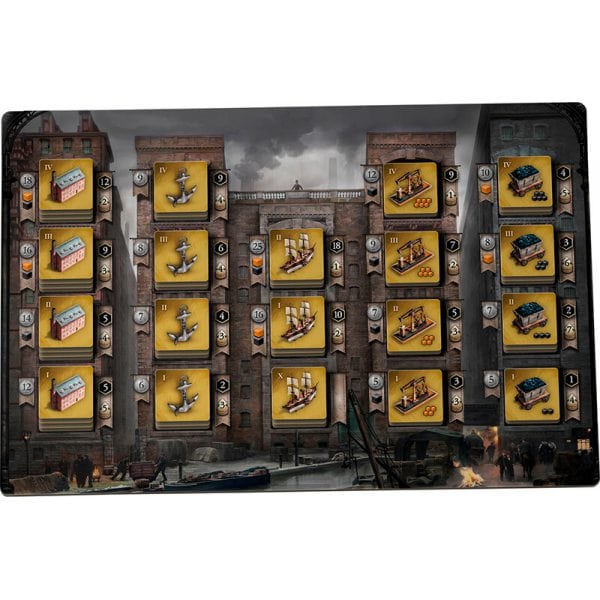
Brass: Lancashire (eng) Board game Roxley 777

Brass: Lancashire Player Tokens set of 133
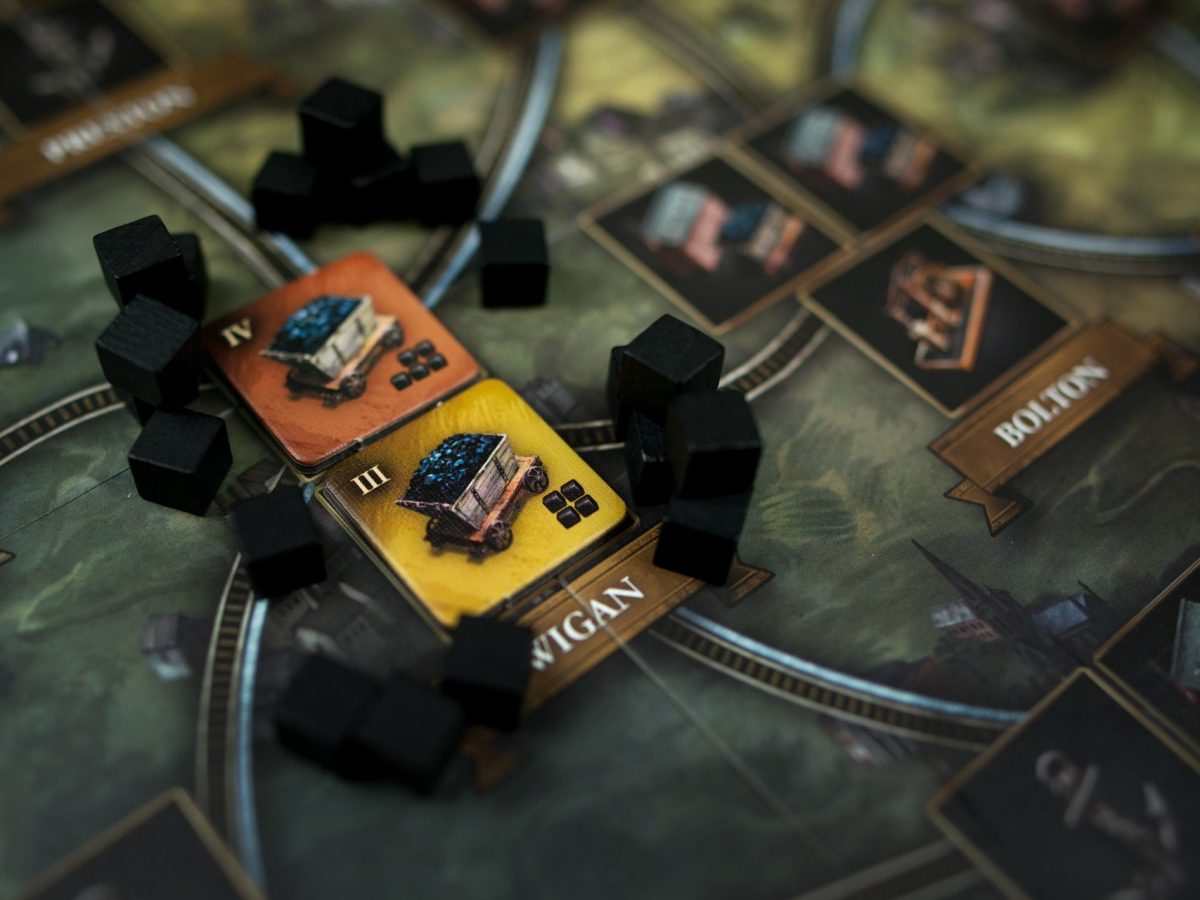
Brass vs. Brass! — Meeple Mountain
The insert is designed for Brass Lancashire. This product allows you to maximize the speed of the game's setup. Each player receives their own

Game organizer for BRASS LANCASHIRE

Brass Lancashire - Live Playthrough with Tabletop Simulator - Boardgame Stories

Brass Lancashire

Buy Brass Lancashire French Version - Funforge - Agorajeux gamestore

Brass: Lancashire Organizer Insert
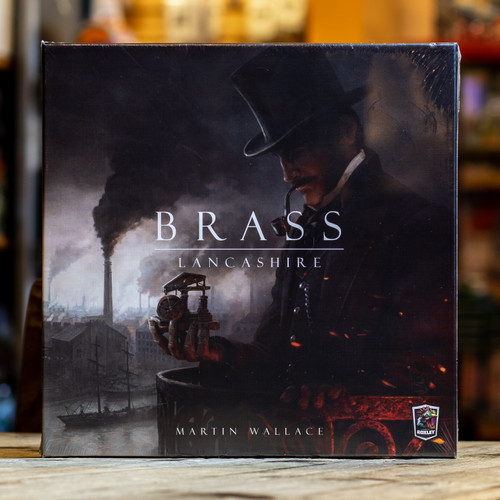
Mox Boarding House
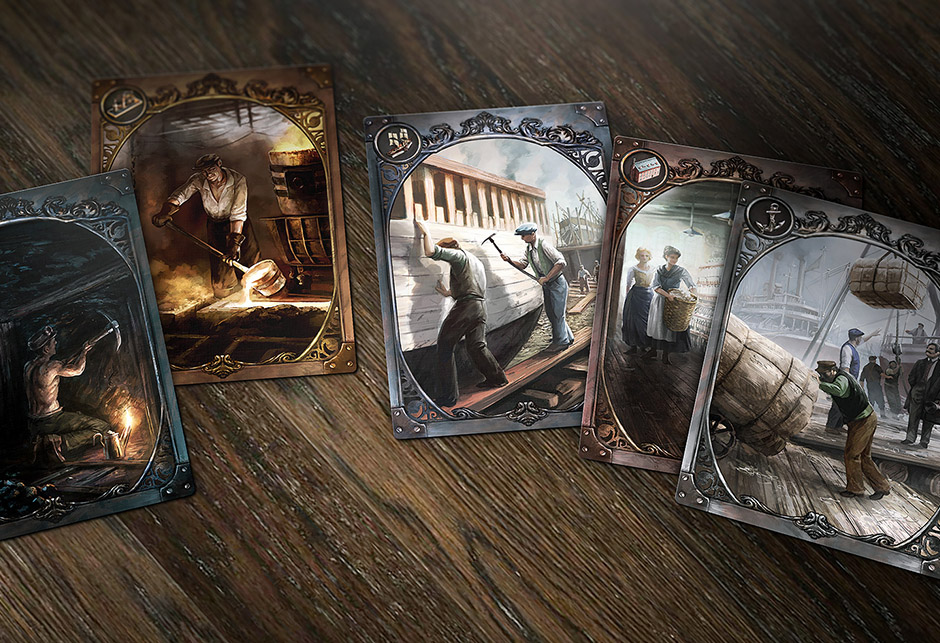
Brass Lancashire – Cards « Mr. Cuddington
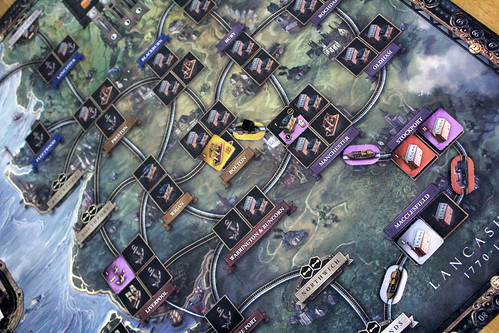
Brass: Lancashire & Birmingham - Meople's Magazine
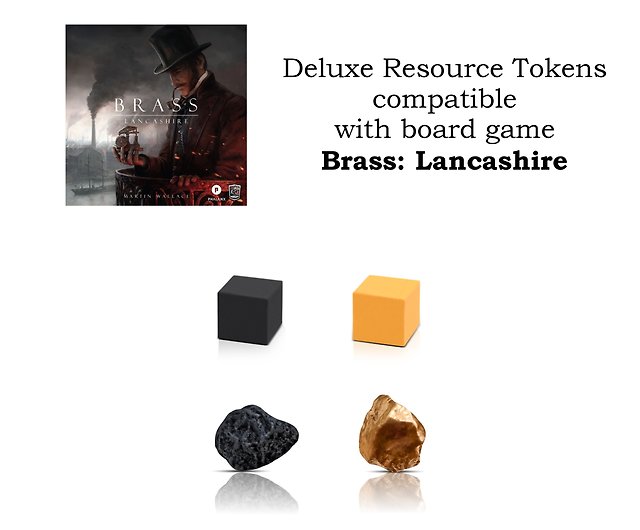
Deluxe Resource Tokens compatible with board game Brass: Lancashire - Shop Holy Tokens Board Games & Toys - Pinkoi
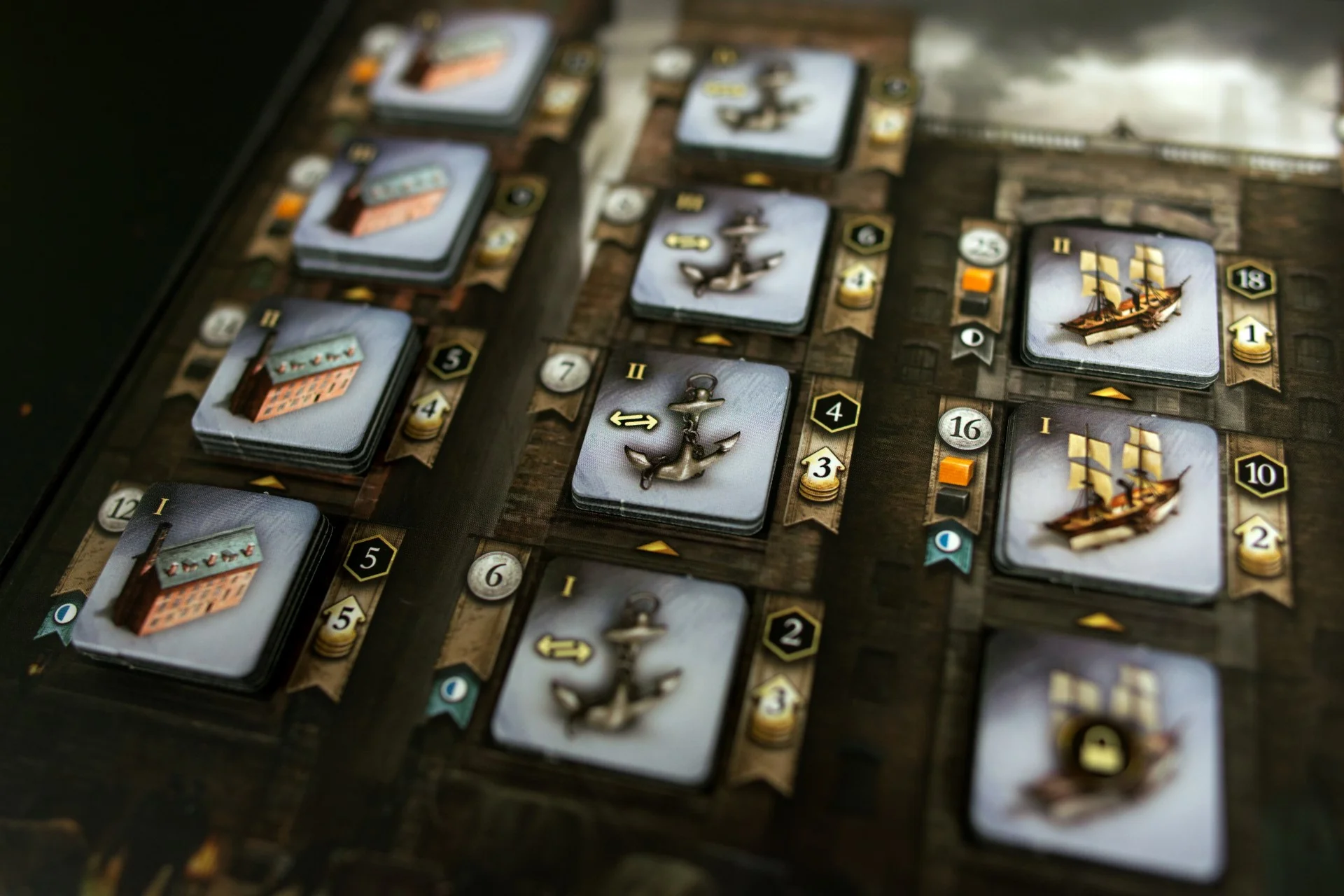
Brass: Lancashire Spielbound Board Game Cafe
